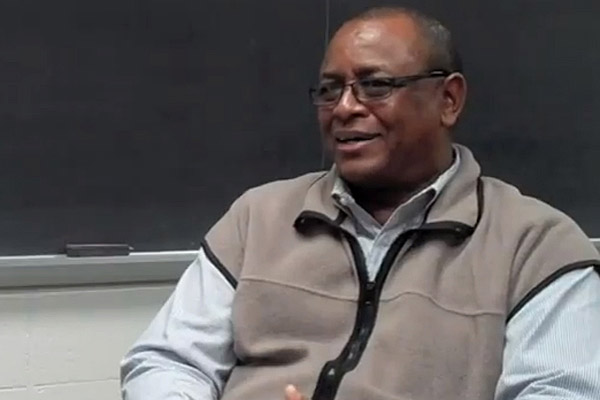Black politics
UD professor's book examines 'Black Politics Today'
1:40 p.m., Feb. 20, 2012--The civil rights legislation of the 1960s, which sought to empower and strengthen the black community, now indirectly poses a threat to the group’s collective social, political and economic development, according to Theodore Davis, University of Delaware associate professor.
His new book, Black Politics Today, suggests that the rise of a new black middle class—one that is wealthier, better educated and not faced with the same limitations and restraints of their pre-civil rights predecessors—has created a rift in shared aspirations, social bonds and values within the black community.
Research Stories
Chronic wounds
Prof. Heck's legacy
“Different blacks have different agendas, and that has weakened the blacks as a political community,” Davis says.
Growing socioeconomic divisions within the black community, he adds, have affected blacks’ ability to organize effectively to influence public policy.
“In this new era of black politics, there is no such thing as a black community,” says Davis. “There are black communities.”
The problem, he states, is not in the diversity of opinions or perspectives but, rather, in varying approaches to addressing and defining the issues that impact the larger black community.
As Davis explains, “Black politics today is increasingly becoming less about advancing the interests of the larger group, and more about advancing interests of the individual or sub-groups within the community.”
His research traces three generations of black politics, with particular focus on the late 1980s to the present, a period he has dubbed, “the era of socioeconomic transition.”
This period, which has coincided with the rise of a new black middle class, is defined by an increase in the role that class is playing in black politics, even while race remains the dominant factor.
As a result, Davis argues, black politics today, unlike the past, has an external dimension that is driven by race and internal dimension that is driven by class.
He compares it to family dynamics:
“We look united outside the house, but inside there is turmoil on the horizon.”
About Theodore Davis
Theodore J. Davis, Jr., is an associate professor in the Department of Political Science and International Relations whose research examines “the politics of human development.” He holds a joint appointment in the Department of Black American Studies.
Article by Artika Rangan Casini











